02 Nov 2022
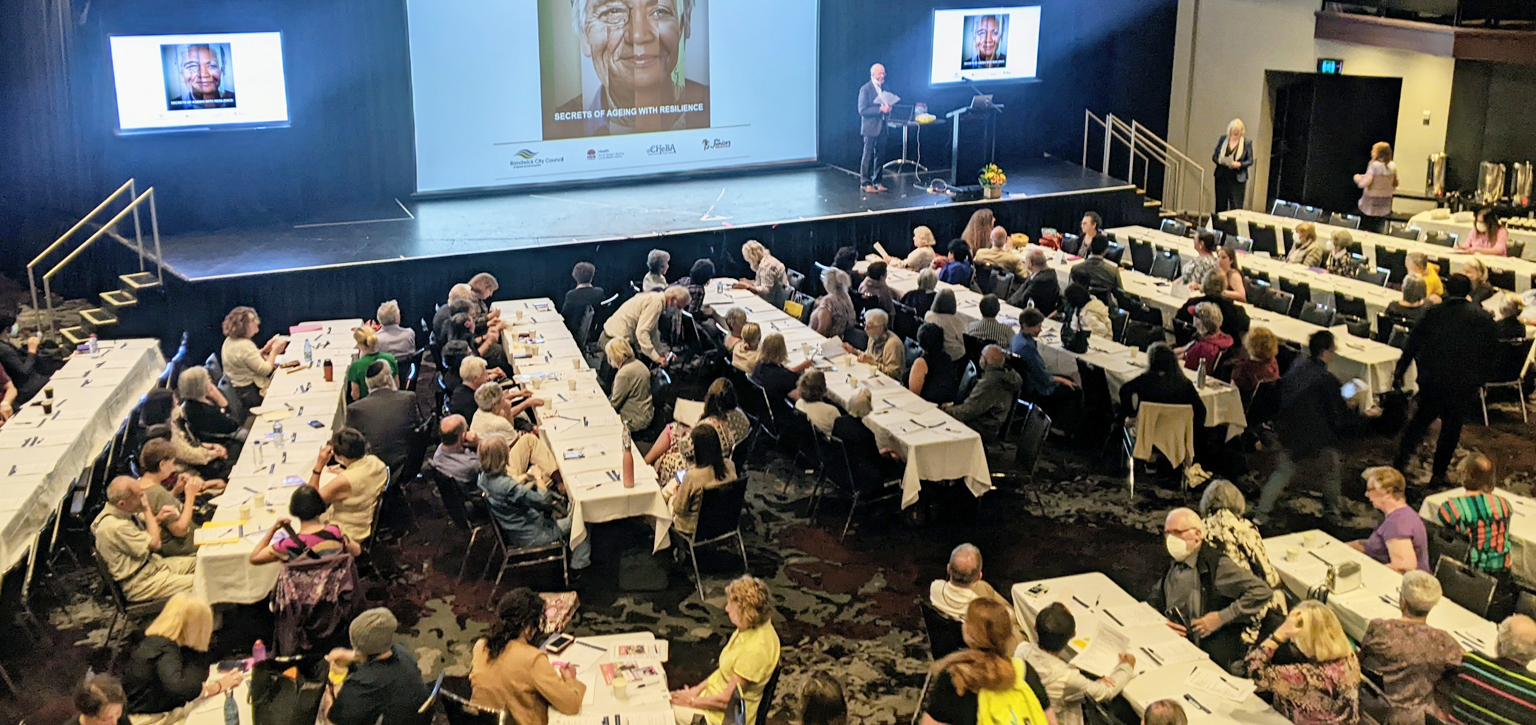
HEIDI DOUGLASS | h.douglass@unsw.edu.au
For the first time in three years, seniors from across Sydney were able to attend an in-house version of the Eastern Suburbs Older Persons’ Mental Health Service’s annual forum which seeks to encourage a paradigm shift in the approach to ageing.
The official opening of the Secrets of Ageing with Resilience forum was made by Deputy Chair of the South Eastern Sydney Local Health District (SESLHD) Dr Debra Graves, who acknowledged the importance of the theme and its relationship to positive mental health promoting healthy communities.
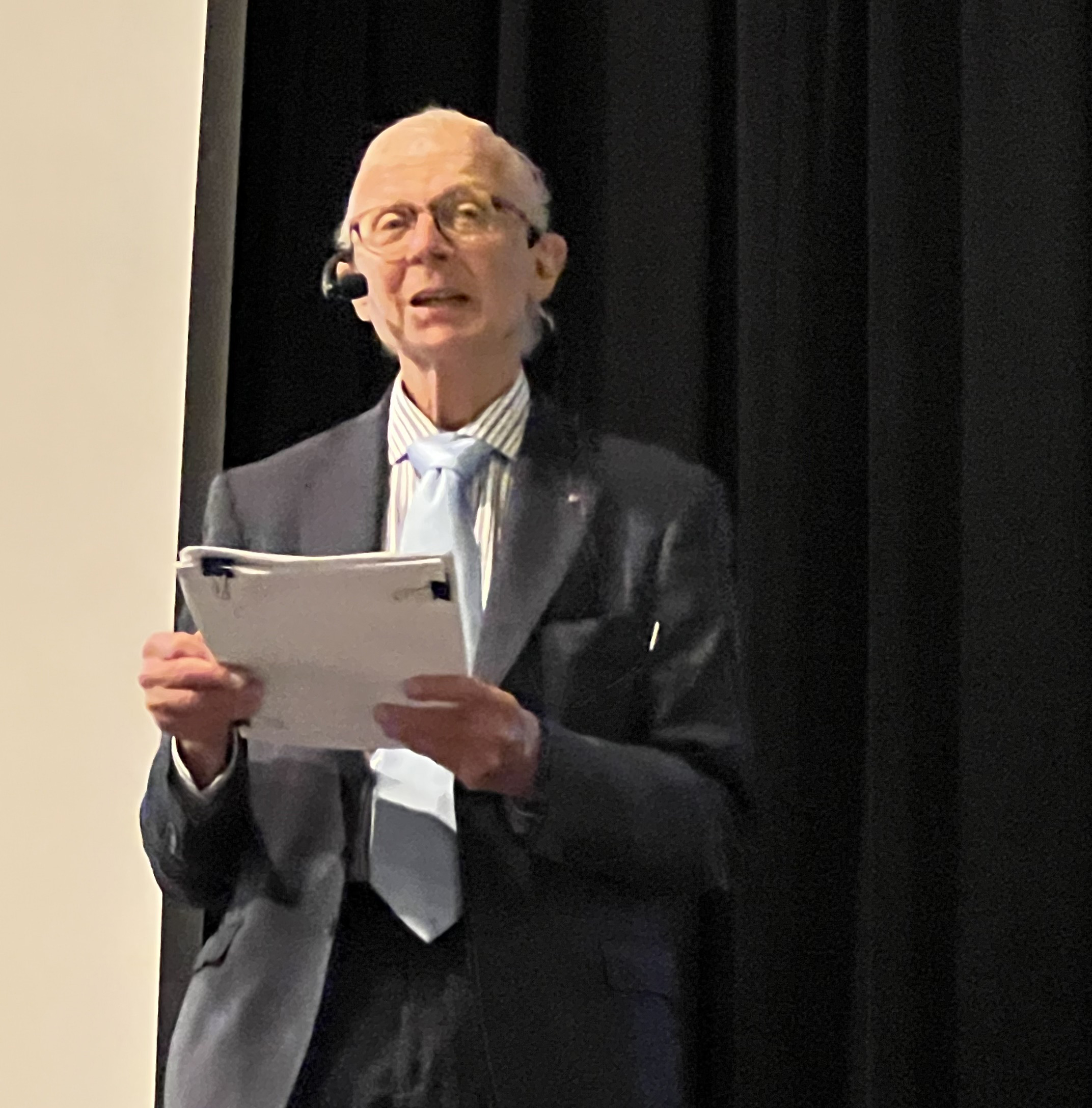
“At SESLHD we support seniors to actively improve their health,” said Dr Graves. “These annual sessions are a wonderful opportunity to bring people together and help facilitate that goal.”
Dylan Parker, Mayor of Randwick, acknowledged the importance of these annual community events. He noted that despite being 30 years of age and without much lived experience with ageing, there are lessons that can be learned by everyone.
“Much like fine wine, ageing is not a simple process, but there are do’s and there are don’ts.
“Today’s experts will provide the tips to cultivate your own personal vintage and age successfully with resilience,” he said.
The free event, held in partnership with the Centre for Healthy Brain Ageing (CHeBA), provided practical strategies to combat adversity as well as heart-warming personal stories of courage and survival.
Honorary Medical Officer of the Older Persons’ Mental Health Service, Prince of Wales Hospital, Co-Director of CHeBA and Master of Ceremonies at the event, Scientia Professor Henry Brodaty AO, acknowledged the expert speakers for providing their guidance to the community on such an important topic.
Geriatrician Professor Maria Fiatarone Singh AM spoke of the importance of not going through life avoiding stress. She covered the general qualities of resilient agers such as having a purpose in life and personal traits of empathy and altruism but focused her talk on the relationship between physical fitness – particularly muscle mass - and psychological resilience.
There is a lot of evidence that suggests we grow through change, which is also true of physical stress on the body. Regular exercise actually protects against the potential consequences of stressful events. It is a valuable secret to ageing well.
Professor Maria Fiatarone Singh
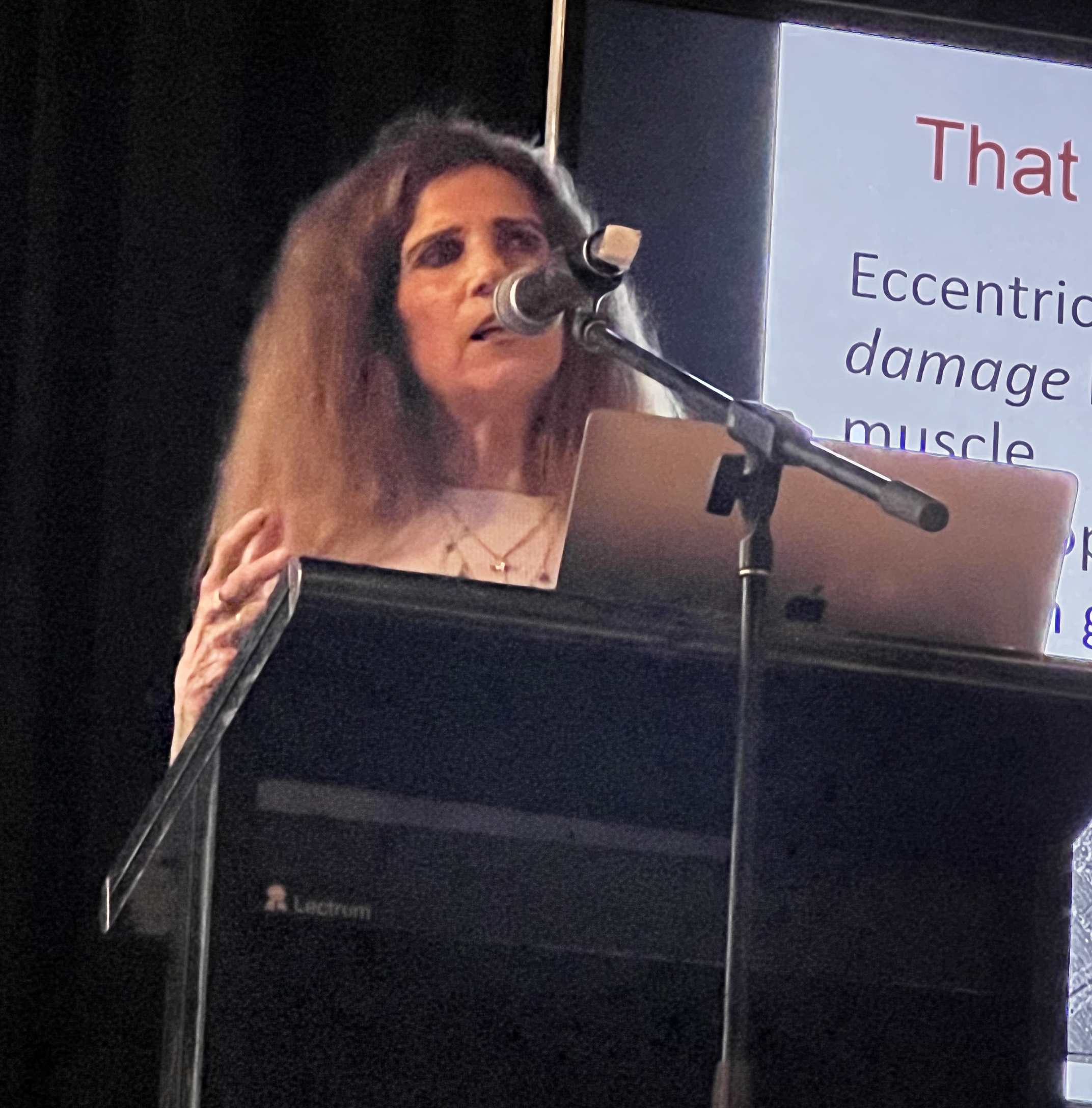
“Muscle is critical for brain function and psychological wellbeing – and we lose 50-60% of muscle mass as we age.
“In our study we’ve had participants that completely defy biological ageing through weight-lifting,” said Professor Fiatarone Singh.
Holocaust survivor Peter Halas, who survived the Nazi occupation during the Second World War and the 1956 Soviet invasion of Hungary, but whose mother and grandparents were executed when he was just 5 years of age, attributes much of his resilience to support from his wife and children.
“I live my life day by day,” says Halas. “Obviously I have stressors like everyone else but I’m a glass half full person.”
Halas, who eventually founded Sea Folly, was dubbed by Master of Ceremonies and close friend Professor Henry Brodaty AO as “the epitome of resilience”.
Another incredible personal story of survival and hardship came from Wiradjuri and Gamilaroi Woman and Associate Professor Lynette Riley, who supports sustainable change for Aboriginal communities.
Lynette Riley shared the devastating history of her Uncle Tom who was taken by police when just 6-years-old child to juvenile detention for a full two years after speaking his indigenous language at school. She explained what it was like to live through the 70s when you were required to have a ‘Certificate of Exemption’ to be allowed to go to a normal school. “It was effectively saying we were exempt from being Aboriginal,” said Riley.
Keep busy, keep going, and do it with humour.
Lynette Riley
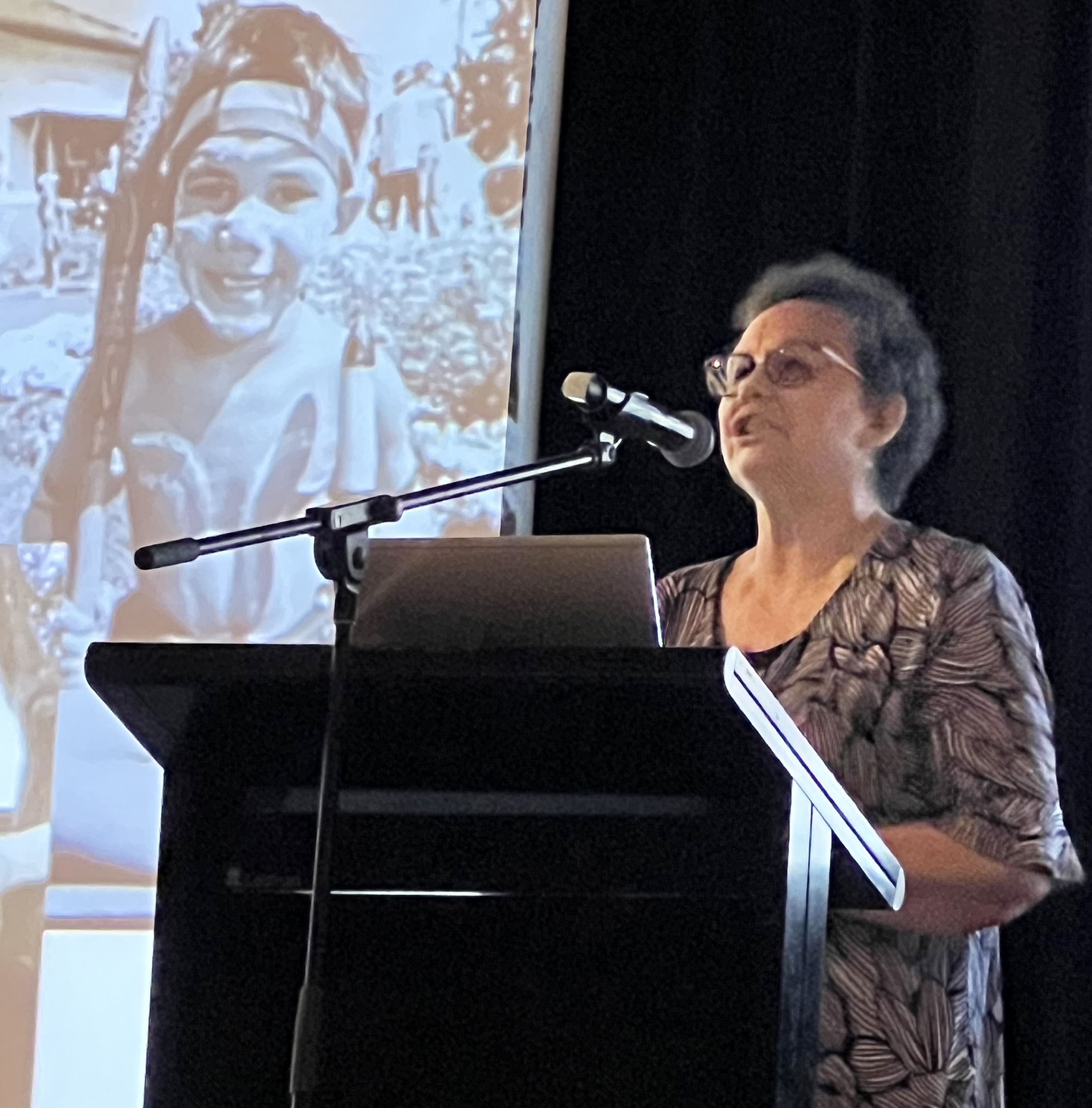
Final speakers were Elizabeth Chong AM and Professor Gordon Parker AO, who both advocated positivity and the need for accepting and embracing change in life.
“Life taught me to meet challenges,” said 91-year-old Chong who has been called the Australian queen of Chinese cookery. “I had to work and I always looked forward.”
“Life is serious and I think it’s important to try and not take yourself too seriously. I like change.”
Psychiatrist Professor Parker, author of 23 books and founder of the Black Dog Institute, defined resilience as the ability to bend but not break and to recoil from setbacks.
“Resilient people more readily tap into hope Under pressure they demonstrate curiosity and keep moving forward,” he said.
Professor Parker said that we can think ourselves old which compromises our resilience, and posed the question: “can we improve our resilience by thinking ourselves young?”
His advice on advancing resilience was to find positive meaning in ordinary events and highlighted the fact that resilience people tend to motivate others, render adversity transformative, they are curious, creative, kind and able to appreciate beauty. He said resilient people also display humour and gratitude.
“We learnt from our panel many secrets to resilience with ageing. For some it was their persistence and hard work; for others luck helped. All emphasised the importance of family and close ties to others. Our speakers’ personalities shone through – they were positive people who faced difficult times and illnesses and yet bounced back. One message is that it is never too late to take on new challenges,” said Professor Brodaty.
Book Recommendations from Professor Gordon Parker:
- Victor Frankl: Man’s Search for Meaning
- Petrea King: Up Until Now
- Norman Cousins: Anatomy of an Illness
- Anne Deveson: Resilience
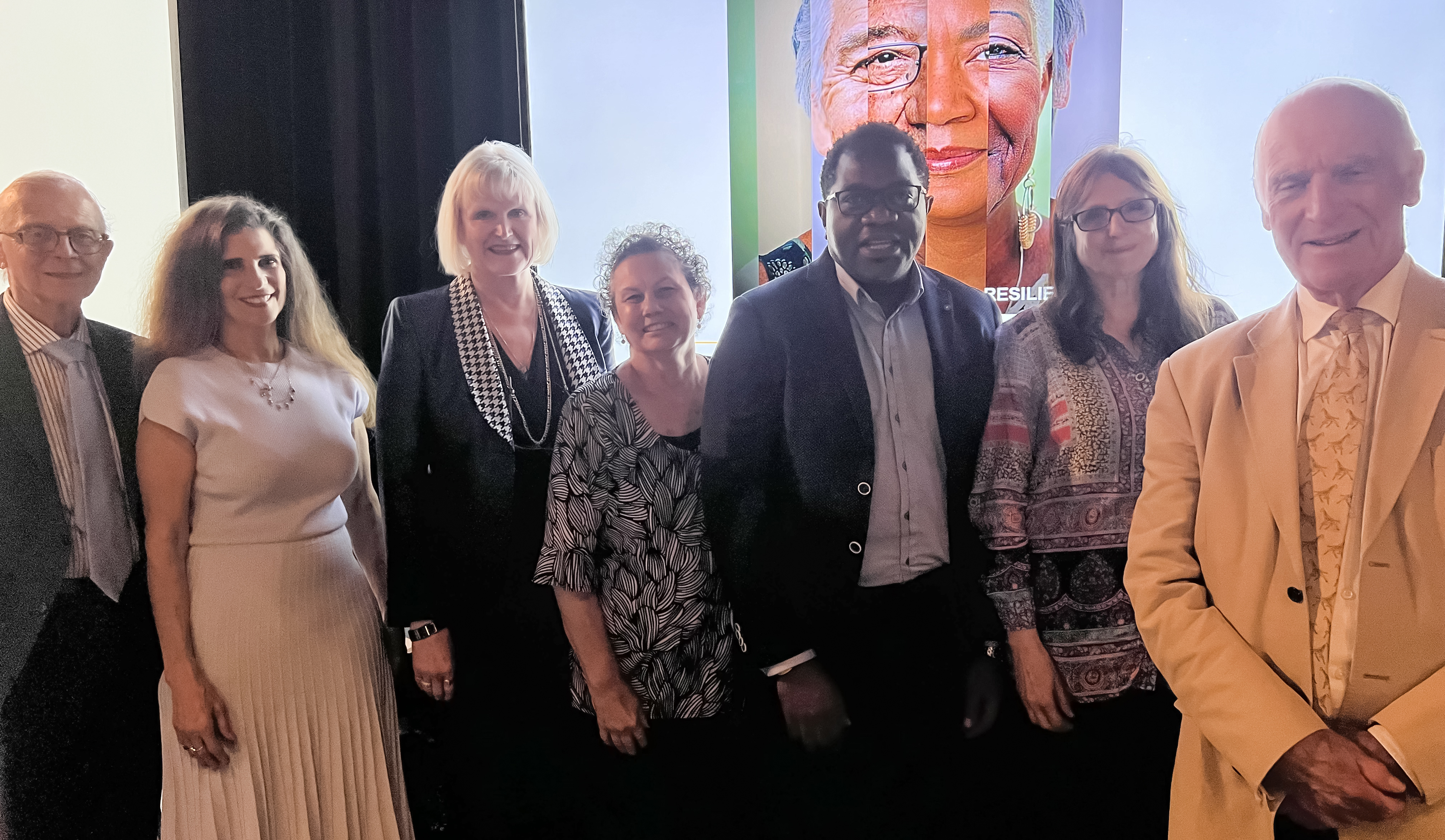
Professor Henry Brodaty acknowledged the efforts of Older Persons’ Mental Health Service Clinical Manager, Daniella Kanareck, for expert delivery of the successful annual public forum for most of its 20 years.
All presentations from the Forum can be accessed at here.
